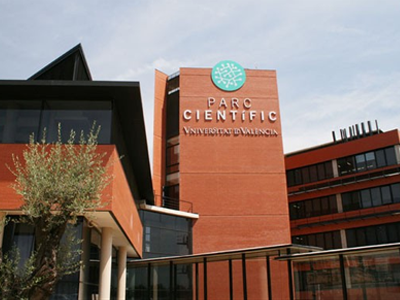
The Ministerio de Economía y Competitividad or Spanish Ministry of Economy and Competitiveness (MINECO) has made public the accreditation ‘María de Maetzu’ at the Institute for Molecular Science of the Universitat de València (ICMol), a recognition of scientific and innovative excellence of this centre which carries out frontier research and that is among the strongest in the world in its area. The accreditation is valid for four years and counts with a grant of two million euros for this period.
State Secretariat for R&D&i has granted seven new accreditations corresponding to the programme of Centres of Excellence ‘Severo Ochoa’ and ‘María de Maetzu’. For the second year, the Universitat de València obtains a concession. If the last year the Institute of Corpuscular Physics IFIC –joint centre Universitat de València/CSIC- obtained the ‘Severo Ochoa’, this year the award goes to the Institute for Molecular Science (ICMol) in the category ‘María de Maetzu’, destined to smaller organizations and equal in level of excellence. Both centres are located in the Scientific Park of the academic institution.
These distinctions are the biggest award in scientific investigation addressed to centres and excellence units in Spain and they are granted after a rigorous evaluation process made by international scientific committees grouped in three areas: Life Sciences and Medicine; Experimental Sciences, Mathematics and Engineering; and Humanities and Social Sciences. The accredited centres and units stand out for the international impact of their scientific contributions, as well as for their innovative capacity and their intense relationship with the social and the economic environment. These are also institutions of global reference able to draw international talent.
This call’s resolution, brings to ten the‘María Maetzu’ units and 23 the ‘Severo Ochoa’ centres that form the Spanish basis for an excellent, highly competitive research, and 4 of these are in the Valencian Country. The institutions with the ‘Severo Ochoa’ award are the Neuroscience Institute of Alicante (UMH/CSIC), the Institute of Chemical Technology ITQ (UPV/CSIC) and the IFIC (UV-CSIC). The ICMol has now the first ‘Maria de Maetzu’ award in the Valencian Country.
The three centres that have achieved this year the ‘Severo Ochoa’ award are the Basque Center on Cognition, Brain and Language, the Insitute of Material Science of Barcelona of the Spanish Research Council (CSIC), and the Centre for Research in Agricultural Genomics (CRAG), consortium formed by CSIC, the Institute for Food and Agricultural Research and Technology (IRTA), the Universitat Autònoma de Barcelona (UAB) and the Universitat de Barcelona (UB). These three centres will receive annually one million euros for four years.
The four research units selected in the category of ‘María de Maetzu’ are: the Department of Information and Communication Technologies of Pompeu Fabra University, the Department of Particle Physics of the Centre for Energy, Environmental and Technological Research (CIEMAT), the Institute for Molecular Science of the Universitat de València, and the Institute of Environmental Science and Technology (ICTA) of the UAB. These units will have a funding of 500,000 euros a year for four years.
Founded in 2000, the Institute for Molecular Science of the Universitat de València, is a centre of excellence in chemistry and molecular nanoscience. Its scientific objectives focus on areas like design and the synthesis of functionalized molecules, the supramolecular associations and the molecular materials with interesting physical or chemical properties. The fields of application go from molecular magnetism and molecular electronics to nanotechnology and biomedicine.
More than 160 people, distributed in eight scientific teams, are researchers in this centre run by the Inorganic Chemistry professor Eugenio Coronado.
The ICMol participates in the development of different European projects, within the EU framework programme, and counts with an Advanced Grant and a Consolidator Grant from the European Research Council. These projects are framed within the fields of nanoscience, energy and information and communication sciences. Specifically, they focus on the development of particles, materials and devices of interest for magnetism, electronics and molecular spintronics (Spin valves, magnetic qubits, unimolecular transistors, OLED, molecule solar cells, etc.)
On the other side, it coordinates projects of the National Programme CONSOLIDER INGENIO 2010: NANOMOL about molecular nanoscience and SUPRAMED about biomedical applications of supramolecular chemistry. In the Valencain Country, it develops projects of the PROMETEO Programme about molecular magnetism.

